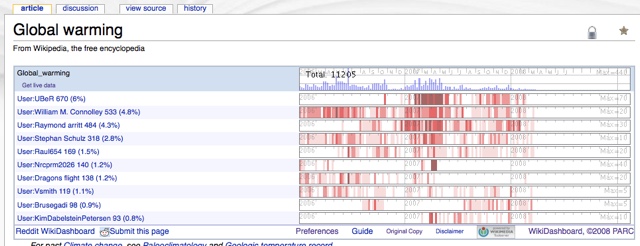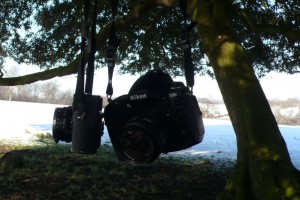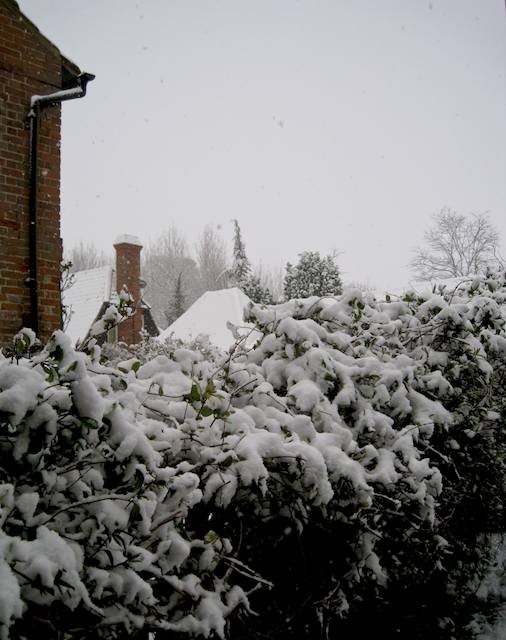
This diagram summarises the editing activity on the wikipedia page about Global Warming. I produced it by running the entry through an intriguing new web service described by Technology Review.
Despite warnings from many high-school teachers and college professors, Wikipedia is one of the most-visited websites in the world (not to mention the biggest encyclopedia ever created). But even as Wikipedia’s popularity has grown, so has the debate over its trustworthiness. One of the most serious concerns remains the fact that its articles are written and edited by a hidden army of people with unknown interests and biases.
Ed Chi, a senior research scientist for augmented social cognition at the Palo Alto Research Center (PARC), and his colleagues have now created a tool, called WikiDashboard, that aims to reveal much of the normally hidden back-and-forth behind Wikipedia’s most controversial pages in order to help readers judge for themselves how suspect its contents might be.
Wikipedia already has procedures in place designed to alert readers to potential problems with an entry. For example, one of Wikipedia’s volunteer editors can review an article and tag it as ‘controversial’ or warn that it ‘needs sources.’ But in practice, Chi says, relatively few articles actually receive these tags. WikiDashboard instead offers a snapshot of the edits and re-edits, as well as the arguments and counterarguments that went into building each of Wikipedia’s many million pages.
This is a great idea.






